First of all, it is necessary to clarify that "good", "evil" or "evil" used in this article are only within the framework of football, a sport, a game that brings many emotions to fans, and has nothing to do with a person's dignity...
Lionel Messi is one of the greatest players in history. The Argentine superstar’s nearly two-decade career at the top is a treasure trove of stories, statistics and images. In any case, it is impossible to encapsulate the stature of La Pulga.
However, Messi's life or career has certainly never gone through as many changes as it has now, or more precisely, in the past two years. If you count the months that have certainly had many dramatic upheavals ahead, it could be a full two years. That period of time, which is less than 1/10 of his career, has seen this normally quiet player burst out with all the emotions of joy, anger, love, and hate of a human being.
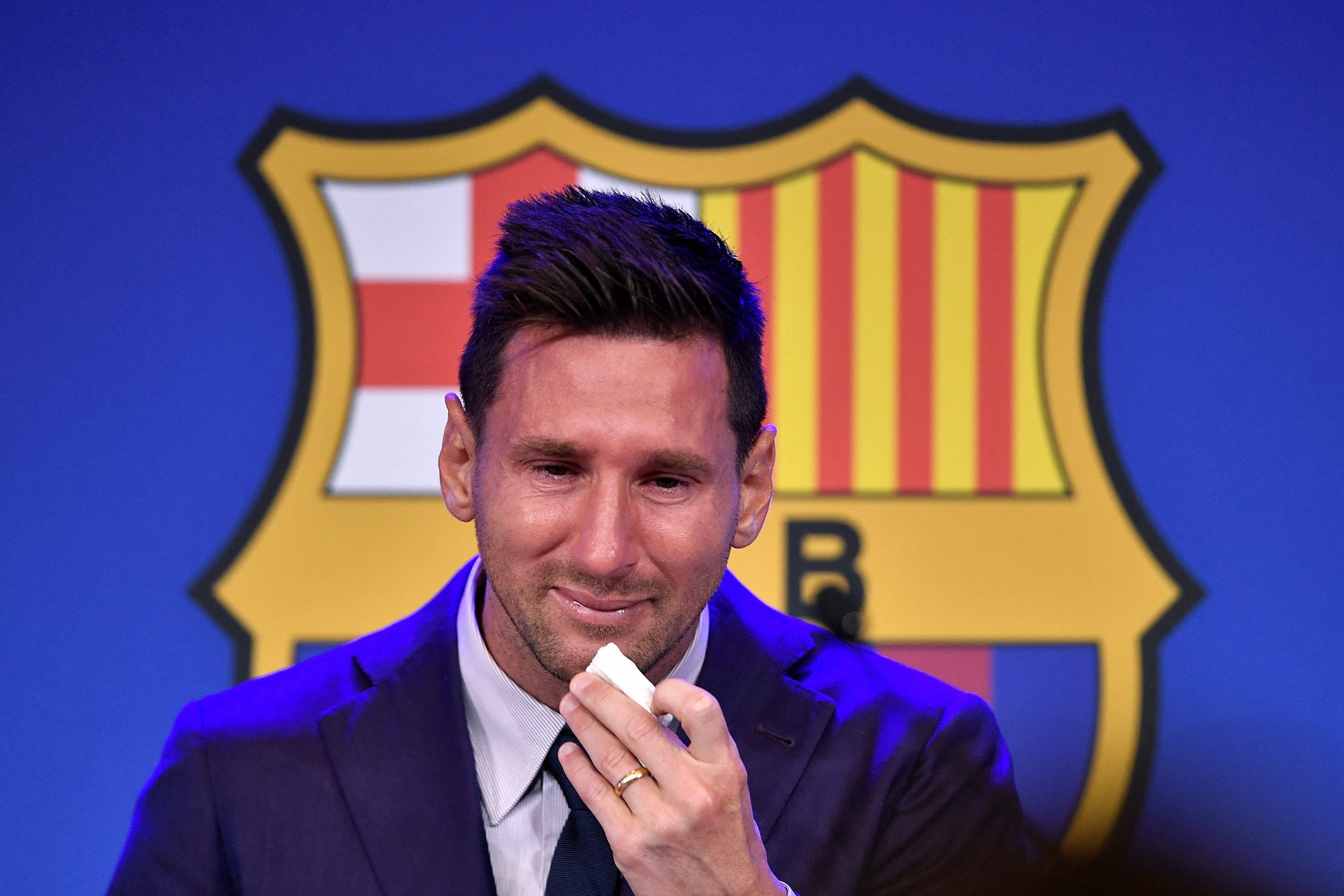
Messi cried in farewell, smiled awkwardly, roared arrogantly, winked mischievously or proudly stepped up to the highest peak of glory. Although short, those 2 years painted Messi with very "real" aspects and invisibly turned this great football player into an inspirational figure off the field.
Many football legends, such as Diego Maradona, Sir Alex Ferguson or Johan Cruyff, are not great only because of their superb football skills, their military tactics or their profound philosophy and timeless thoughts. Their greatness also lies in their ability to inspire off the field. Their every gesture, action or word radiates a special magnetic energy that shakes the world.

Messi devoted himself to Barcelona with all his heart. Before becoming the great Messi of today, Messi was a skinny boy who was struggling to find a chance to pursue his passion for football. The whole country of Argentina turned their backs on him, from his hometown team Newell's Old Boys to the giant River Plate. This is understandable because the cost of treatment was too high and no one knew that Messi would become Messi.
In some parallel universe, perhaps the young Messi never got the chance to get treatment and gave up his passion for football. He wandered the dusty streets and was murdered in a bloody shootout between criminal gangs. Messi’s hometown of Rosario is a drug trafficking hotbed, with the most violent crime in Argentina.
Just recently, Messi's father-in-law's supermarket in the southwest of the city was attacked in the middle of the night with a chilling message: "Messi, we are waiting for you!" A few days later, 12-year-old Maximo Jerez, "possibly a Messi from another universe", was murdered in a shooting spree that involved threatening and harassing locals after being tipped off by the Los Saltenos gang.
When he was shot dead, the boy, who was about the same age as Messi when he left for La Masia, was still wearing a soccer shirt with the name of the captain of the Argentine national team printed on it.
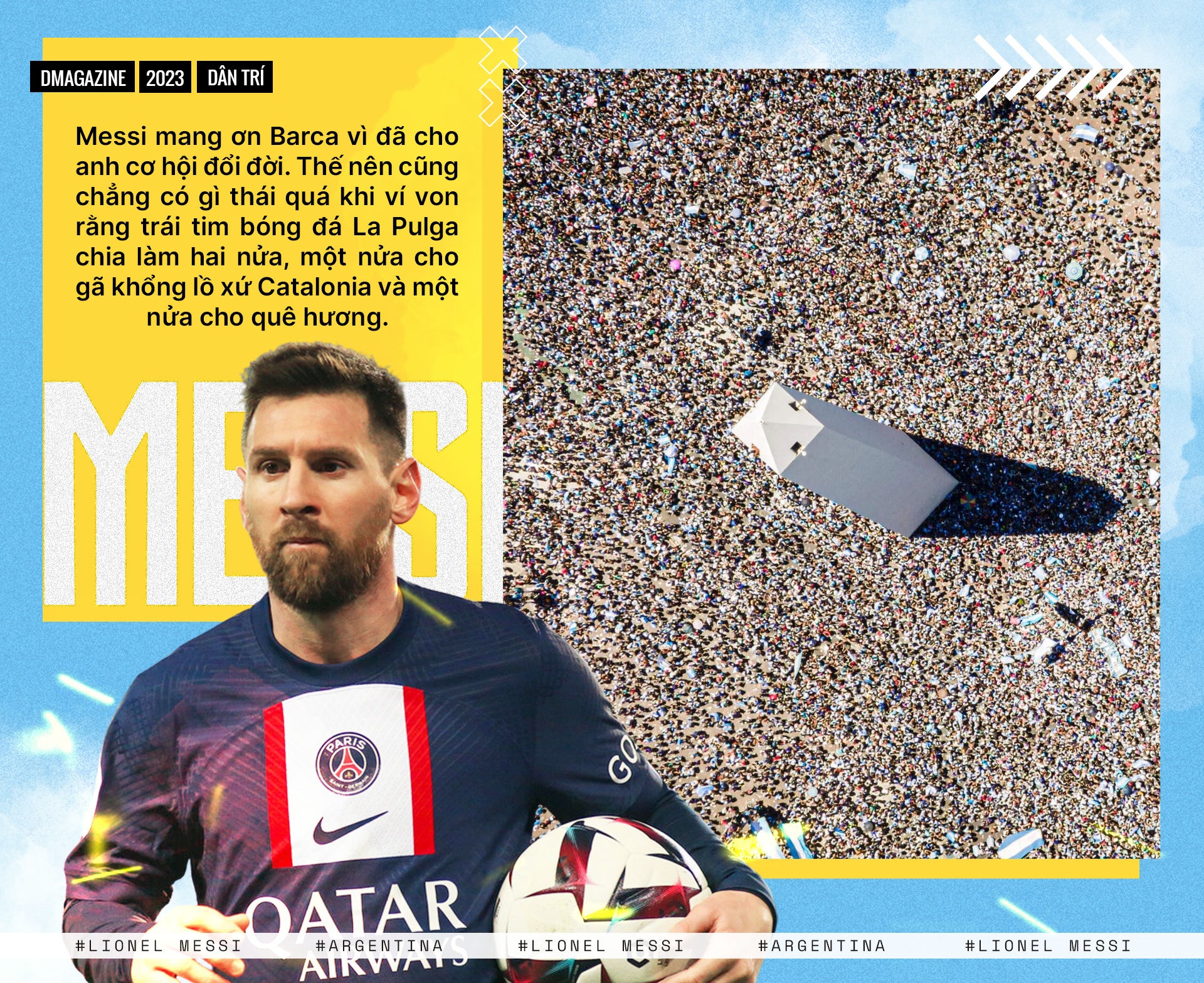
Therefore, Messi is grateful to Barca for giving him the chance to change his life. So it is not too much to say that La Pulga's football heart is divided into two halves, one half for the Catalan giant and the other half for his homeland.
Messi has always given his all for the Blaugrana. 778 games, 672 goals and 269 assists in 17 seasons prove it. Barca's history can be divided into two halves, before and after Messi's arrival. 10 out of 26, more than 1/3 of the Catalan giants' La Liga titles, have featured La Pulga. 4 out of 5 European championships, all Champions League titles, bear the Argentine superstar's mark.
Messi's influence on Barca's position is difficult to measure. His presence makes all opponents wary and any expert has to put the Catalan giants on the list of top candidates, even though at times Barca's force has been extremely exhausted.
Messi is a true product of La Masia. He is imbued with the passing and ball control style, the minimalist but effective playing style and the disciplined manner on and off the pitch.
Although he has Argentine blood, during his years at Los Blaugrana, La Pulga was completely stripped of his "sneaky" or mischievous qualities. He was as pure as a crystal drop and became the perfect symbol of Barca.
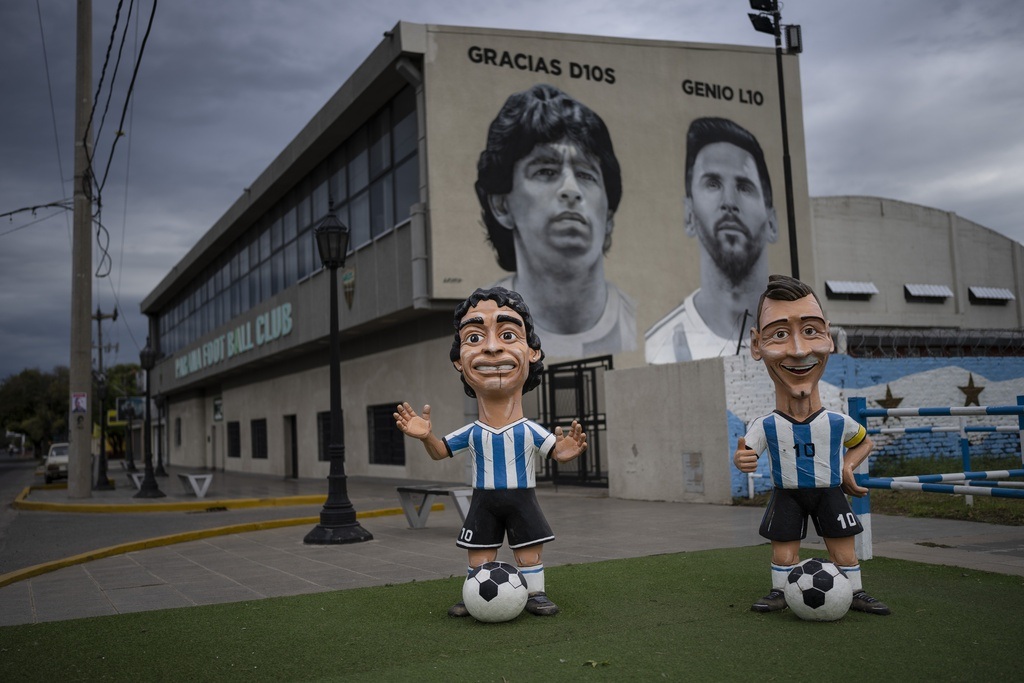
I dare say that most football fans in the world choose to become cules (Barca fans' nickname) because of La Pulga, not because of the hundred-year history of hatred towards Real Madrid. Unfortunately, among Messi's countless immeasurable values, his fate is determined by the things that count. That is his performance and money.
It is undeniable that Barca's level has been declining in the last years of the "Messi era", but it is really unbearable to hear rumors and gossip right in the middle of the Nou Camp that La Pulga's taciturn personality is the cause of the toxic atmosphere in the dressing room.
It is even more ridiculous to say that Barca is in financial crisis because of Messi's salary. Financial, organizational and orientation issues are the responsibility of the Board of Directors. Messi's job is to play football, no one dares to admit that Messi is more talented and dedicated than Barca.
Reality proves that the incompetence and greed of Barca's Board of Directors is the reason why Messi was pushed out of Nou Camp. The way the greatest symbol of Barca had to leave was even more unimaginable, even in Messi's nightmares.
He was out of contract and waited until the last days of the summer transfer window to sign a new contract with the Catalan club. In the end, what he received was the bitter news that the club was not financially capable.
August 8, 2021 forever hammered a nail deep into Messi's soul and Barca's history, when the Argentine superstar cried during a press conference held to say goodbye to the team he had been with since childhood.
Fate sometimes deals people a bitter and unexpectedly cruel blow, even to geniuses who have devoted all their heart and soul to the team. In his last years at Barca, who thought Messi was honest?

With no way back to Barca, Messi chose Paris Saint Germain (PSG) as his next destination, a "marriage" that is hard to describe, or more precisely, it cannot be said to have love. Of course, since the day he bought PSG in 2011, President Nasser Al-Khelaifi has always dreamed of having the Argentine superstar in his squad. In fact, the whole world admires Messi's outstanding talent, the only difference is that PSG's Qatari owner has money, a lot of money.
On the other hand, PSG is also the most feasible option from both financial and environmental perspectives for Messi. Signing a contract with the team at the Parc des Princes, the Argentine superstar received a 25 million euro signing bonus and signed a 2-year contract with a salary of 25 million euro/year. A total of 75 million euro for 2 years is a number that is hard to refuse, especially when there is no burden like at Barca or high intensity like in the Premier League.
To put it more broadly, signing Messi for PSG is like owning the most precious jewel to put on the crown of a pretentious rich man. Despite spending a lot of money to recruit big names, including Kylian Mbappe, the future of French football, and Neymar, the number one star of Brazilian football, Messi is still in a different class.
However, besides money and fame, what is left between PSG and Messi?
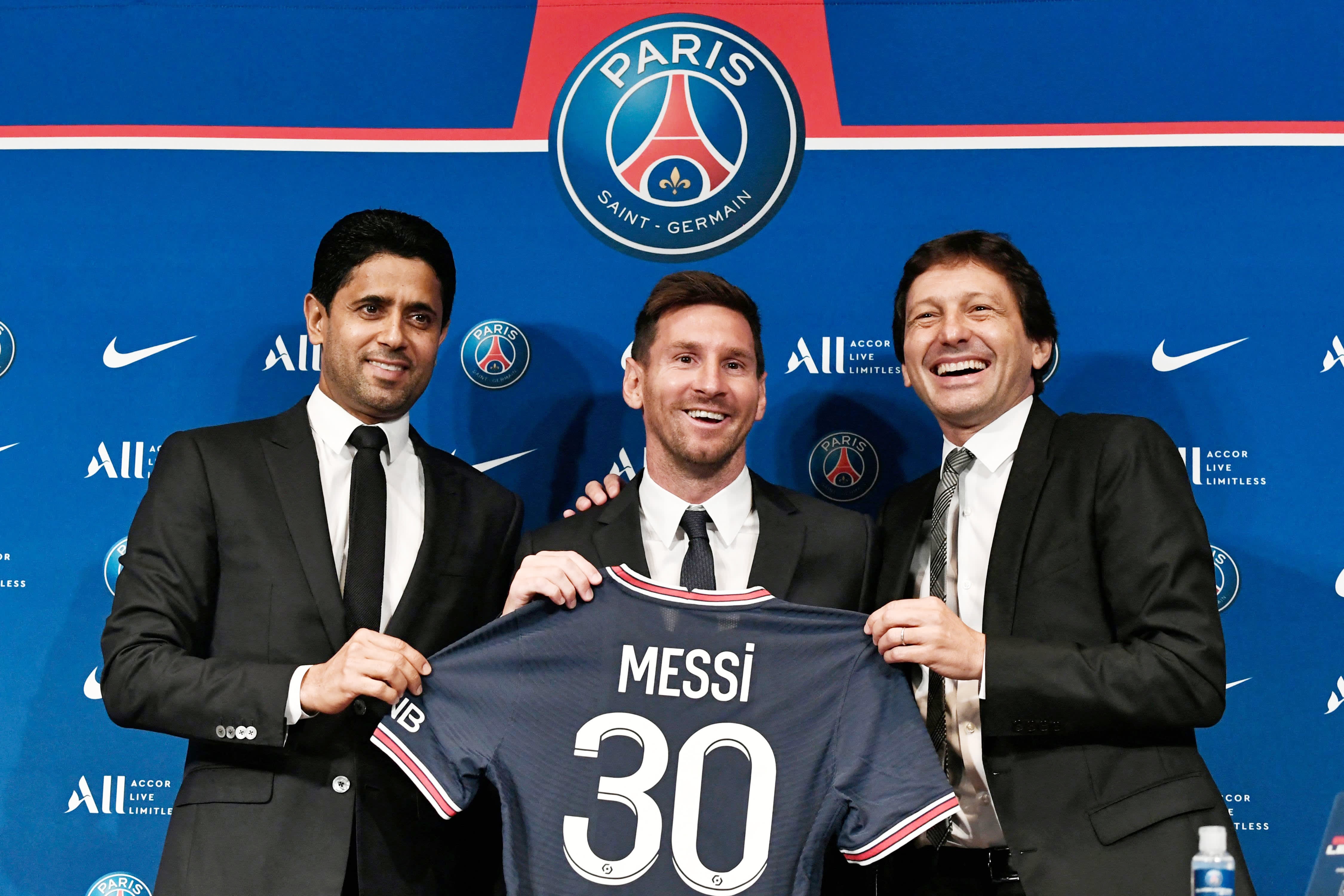
Messi's class has not faded. After 24 appearances in Ligue 1 this season, the Argentine superstar has contributed 13 goals and 13 assists for PSG. The magic still comes from La Pulga's feet, but the effort or dedication from the heart for the team at the Parc des Princes is not present.
Instead of exploding, Messi was like a ghost, wandering and languid in PSG's most difficult moments. From the round of 16 of the Champions League last season to this season, the Argentine superstar has disappeared. The atmosphere at the Parc des Princes is even more toxic because of internal grudges and the anger of the fans.
Many times this season, Messi has appeared or left the field to the boos of the home crowd. For PSG fans, La Pulga plays the role of "the bad guy", "the villain", who is here only for money and is the agent that makes the already chaotic dressing room of this nouveau riche team even more chaotic.
On the other hand, PSG fans can also be a bit cruel to Messi. As legend Thierry Henry said: "The whistling doesn't help. We're talking about the best player in the world!"
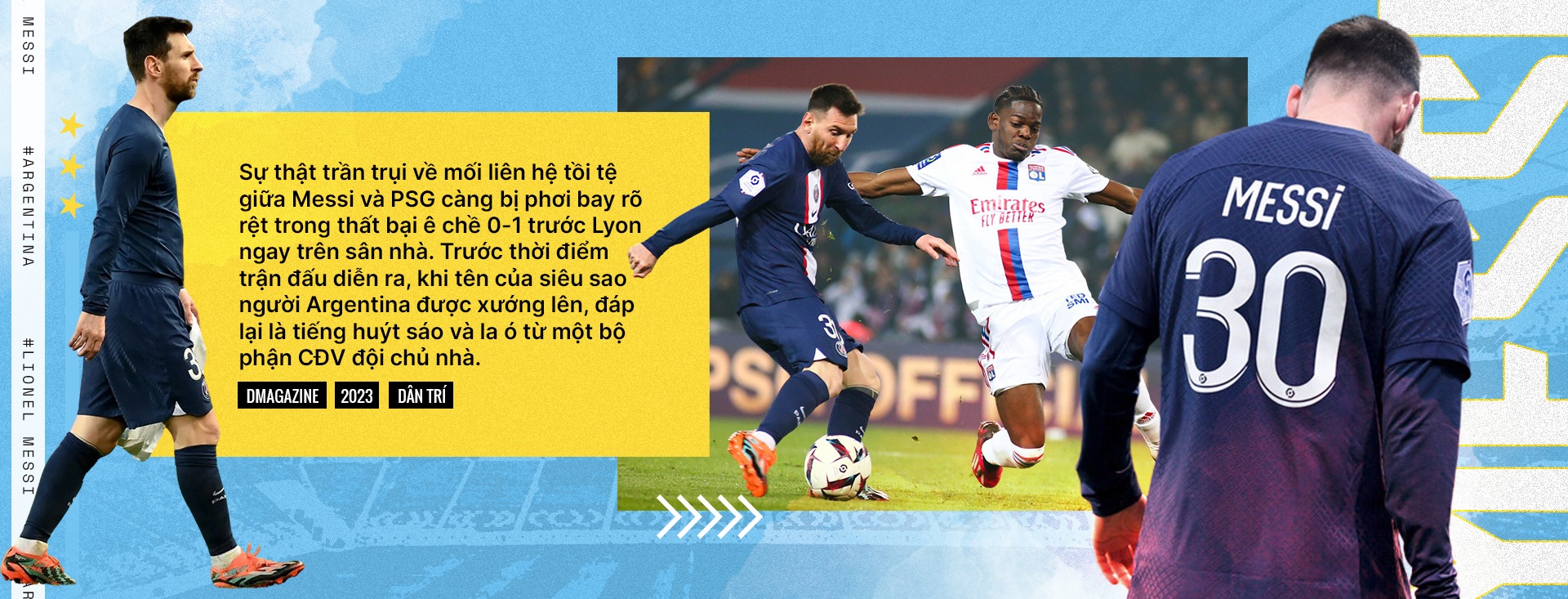
The naked truth about the bad relationship between Messi and PSG was exposed more clearly in the humiliating 0-1 defeat to Lyon right at home. Before the match, when the name of the Argentine superstar was announced, the response was whistles and boos from a part of the home team's fans.
Entering the match, Messi played superficially and continuously made mistakes that he rarely makes. Statistics show that La Pulga lost the ball 26 times in this match. Worse still, not only Messi played poorly, the entire PSG system operated poorly.
Even Mbappe lost the ball 21 times. The whole team was lethargic and indifferent to the result.
Given the current situation, it is difficult to believe that PSG or Messi are determined to extend their contract for another year according to the terms of the contract. This summer, the Argentine superstar will most likely be a free agent again. The question is, where will he go?

The tense atmosphere at the Parc des Princes was in stark contrast to what Messi had enjoyed back home just days earlier, during the national team training session at the end of March. The festive atmosphere has not yet ended in Argentina, even though Messi and his teammates have been crowned World Cup 2022 champions for more than 4 months.
As Ole columnist Diego Macias puts it: "Joy doesn't necessarily have an expiration date."
After winning the World Cup, Albiceleste returned to the capital Buenos Aires to the welcome of 4 million fans. The celebration party could only be described as "crazy" and lasted for 24 hours. Crowds of people filled kilometers of wide streets to sing, dance and generally express their extreme excitement. Finally, after a decade of injustice and bitterness, Messi was honored as a national hero.
That party was recreated when Argentina hosted Panama at the Monumental Stadium on March 24. The organizers opened the gates to welcome fans into the stadium at 3:53 p.m. local time, four hours before the match.
Tickets sold out within an hour of going on sale, fans rushed into the stadium to fill the 83,000-seat stadium, leaving nearly a million unlucky fans outside who couldn’t get tickets. The entire city erupted in cheers, as if the World Cup had just been won yesterday.
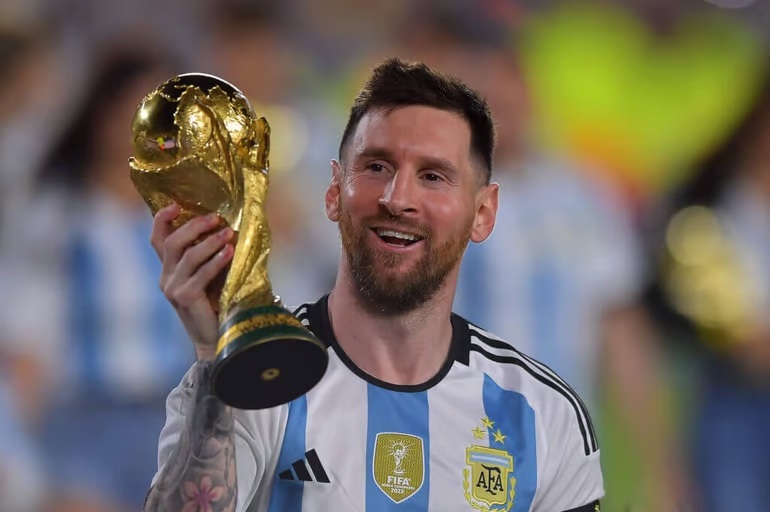
From before to after the match, Messi always had a bright and proud smile on his face. The lively atmosphere and the praise of the fans helped him dispel all his worries at PSG. Somewhere, the thought of why Messi did not return to Argentina to play football must have appeared.
He played for Newell's Old Boy as he always dreamed of and after each match he gathered with friends and family around the fire to enjoy a parrilla. It was the most perfect ending for a great monument after many years of wandering.
However, the dream remains just a dream in the chaotic reality of Rosario. As mentioned, evil spirits permeate Messi’s hometown. The city’s port is where ships transport grain from the fertile grasslands of Pampa Humeda, before sailing down the mighty Parana River to the open sea for export to the world.
However, in addition to grain, the ships also carried cocaine, grown in Bolivia and packaged in Paraguay.
The poison is flown into Argentina. Drug traffickers use illegal planes to drop packages of cocaine into cornfields on the outskirts of Rosario, where they collect and hide them. Many Rosario residents say the police and local authorities lack the capacity and resources to stop the crime.
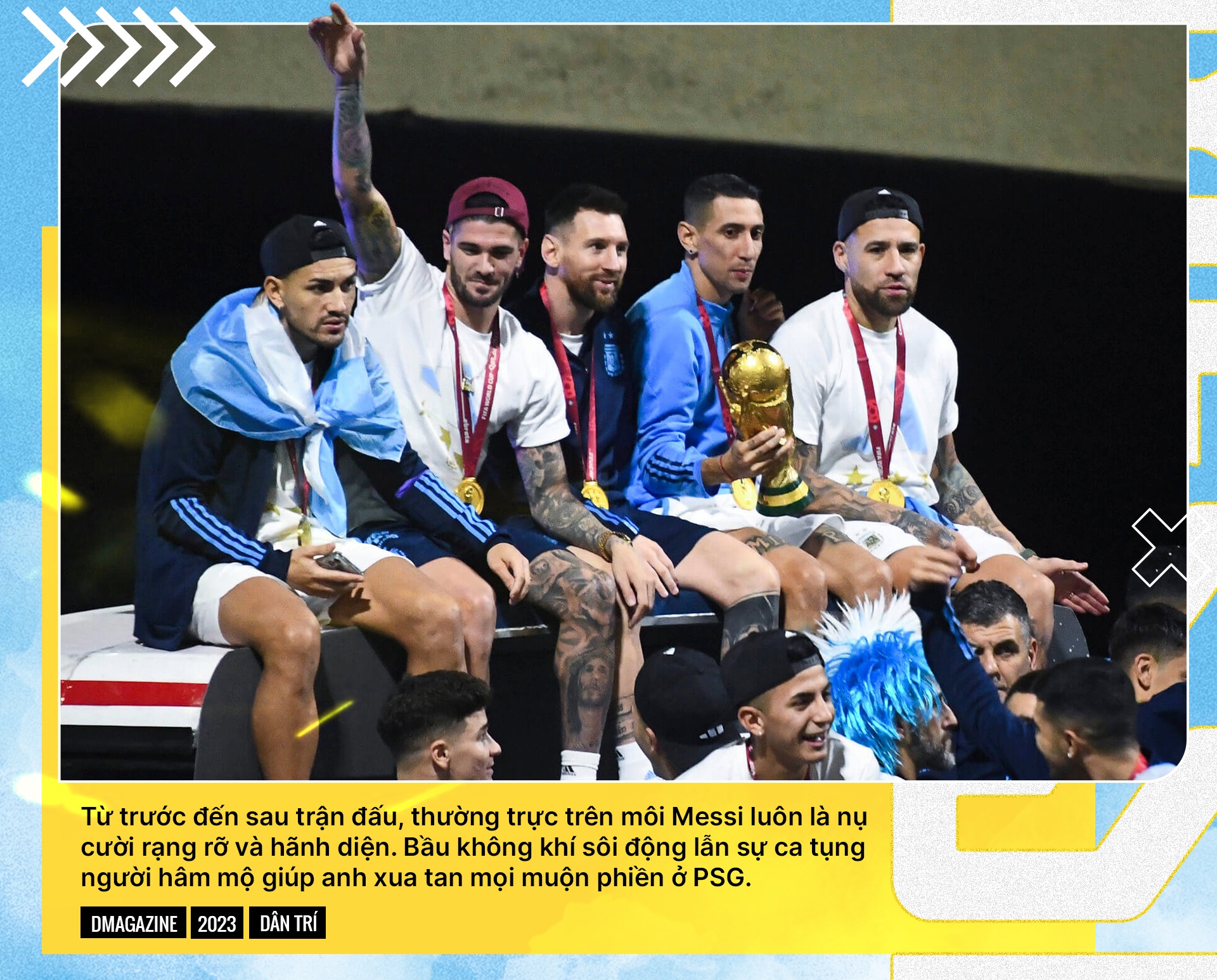
Thanks to the lucrative business, drug gangs and organized crime have caused many murders and violence against the people. In the first two months of 2023 alone, there were 65 murders committed by drug gangs.
Last month, Lorenzo Altamirano, a 28-year-old music teacher and street performer, was kidnapped and murdered while walking home from work. He had no connection to drugs, but unfortunately became a “corpse courier” for criminals.
His body was found outside the entrance to Newell's Stadium, a stadium named after Marcelo Bielsa, the former manager of Leeds United, Athletic Bilbao and the Argentina national team. Witnessing the incident, Aníbal Fernández, Argentina's security minister, bitterly exclaimed: "The drug traffickers have won."
As a husband and father of three children, Messi would not dare to risk bringing his family to live in such a complicated environment, even if it was his homeland. Not only that, as mentioned, Messi himself, despite being a national hero, was still threatened by criminals in the shooting at his father-in-law's supermarket.
Furthermore, although he returns to his hometown every year, Messi only resides at Kentucky Country Club, Funes, a suburb of Rosario, where security is absolutely guaranteed.

Messi's future will only be decided after the 2022/23 season ends and only Messi knows where he will go. Staying at PSG would be a bold and daring decision. Speaking to Spanish newspaper Marca, PSG President Nasser Al-Khelaifi affirmed: "We are working to keep him at the club."
Returning to Barca is the safe and romantic choice. A broken relationship will be repaired. Sergio Aguero, Messi's close friend, publicly supported him to return and retire at the club that helped him make his name.
Mr. Joan Laporta, President of Barca also admitted: "The legacy I received when I returned to the position of President of the team was not good and I had to make a decision that I myself felt uncomfortable with. I had to find a way to mend the relationship between Messi and Barca. He knows that the door to Barca is open again."
Or Messi can go to America to play football, where he cannot conquer more noble titles but can conquer an entire football industry.
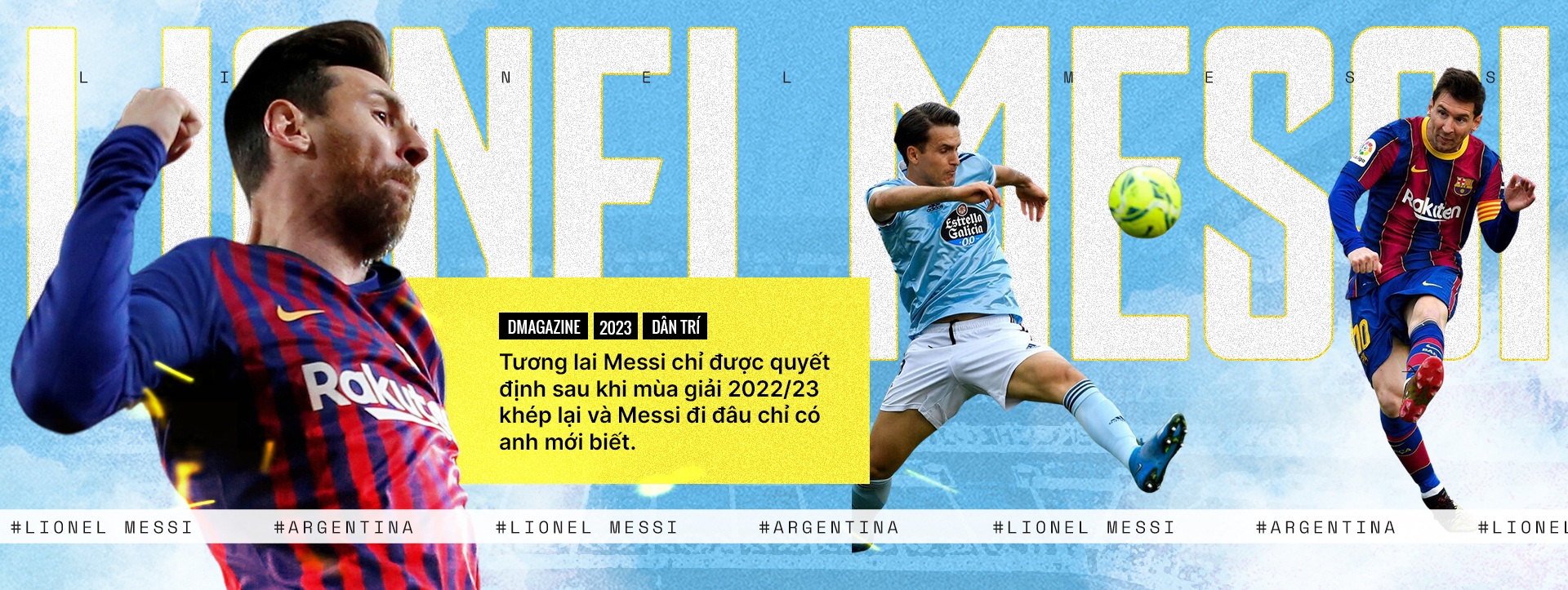
Content: Khai Hung
Design: Do Diep
07/04/2023
Source


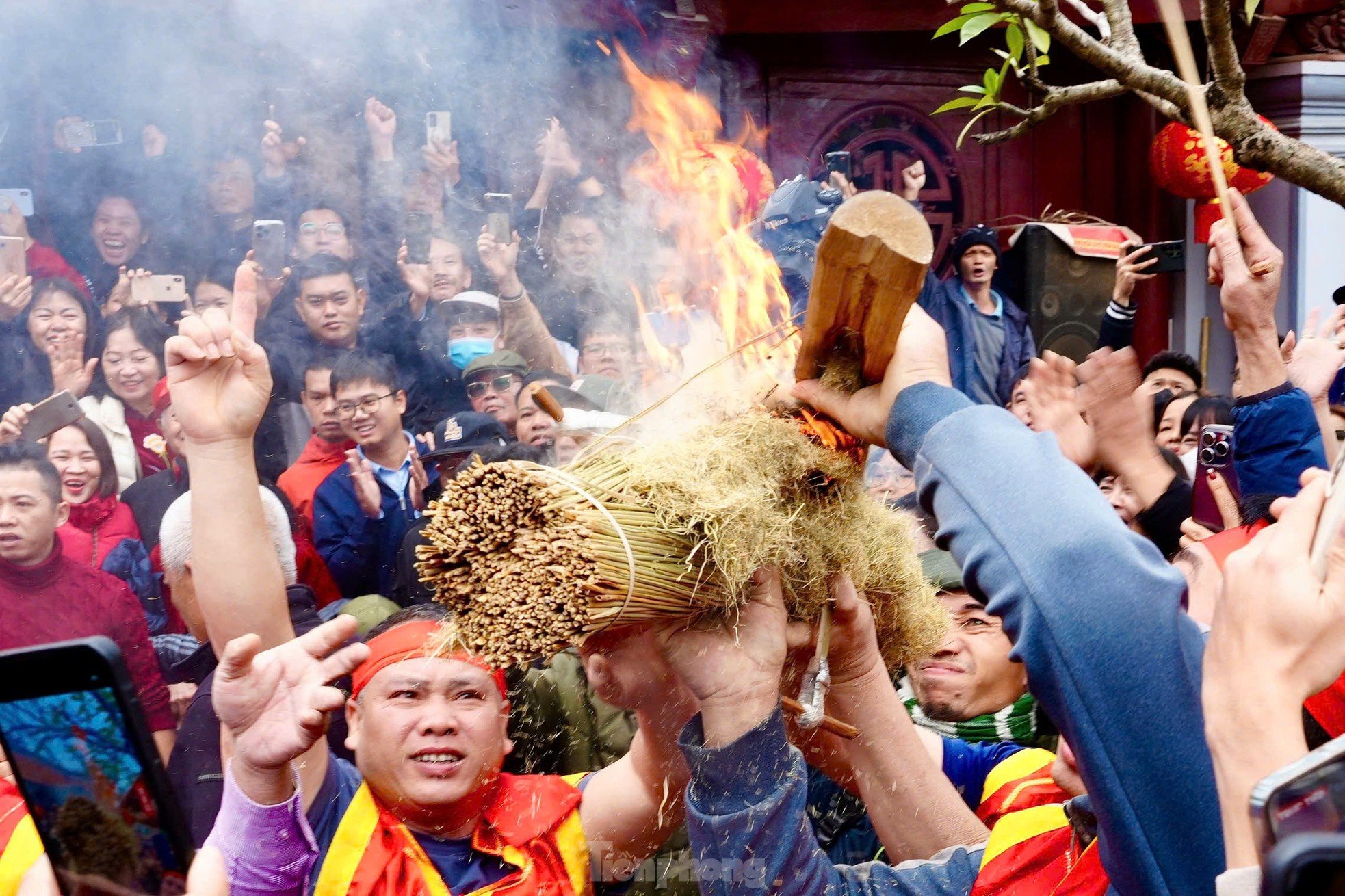
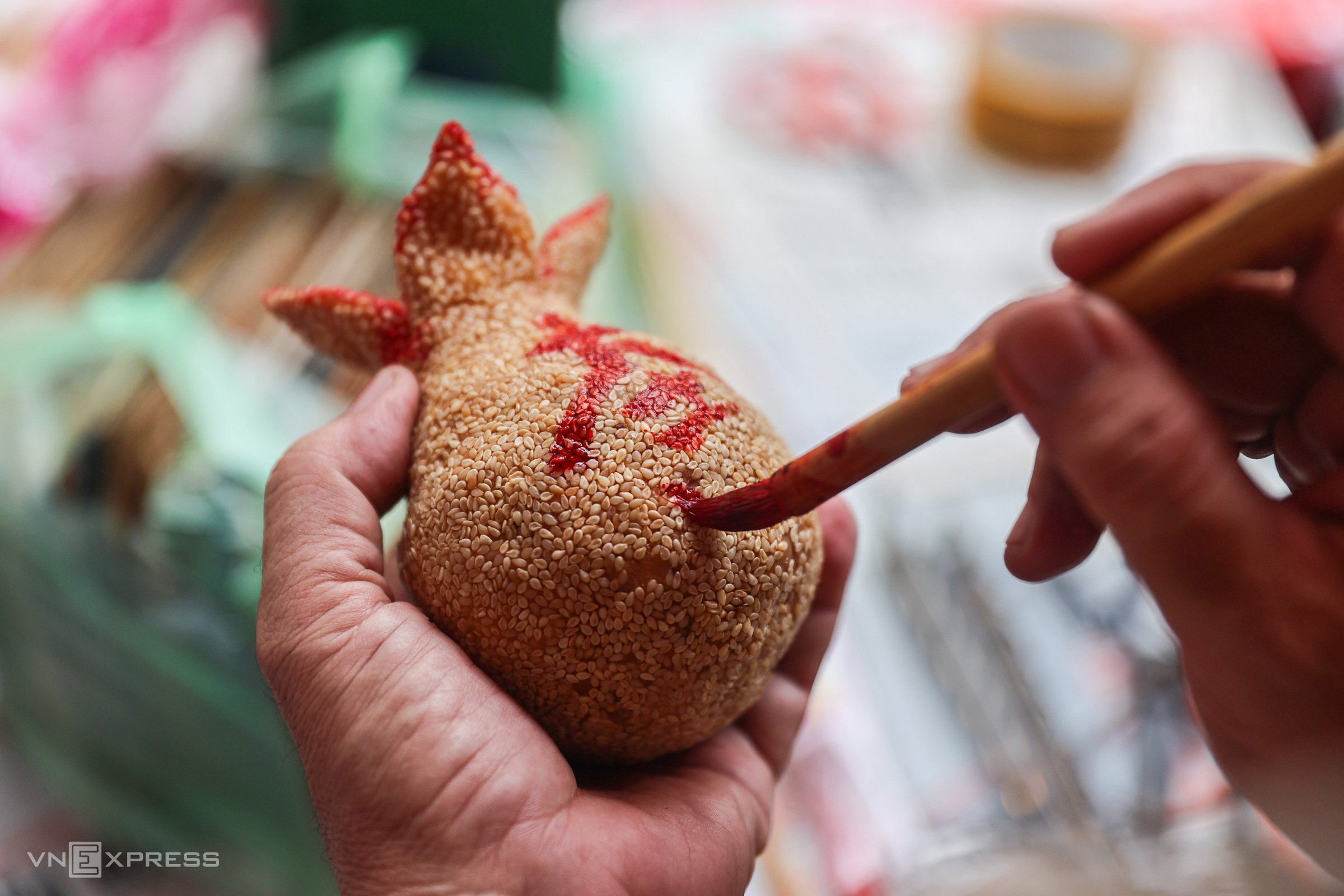


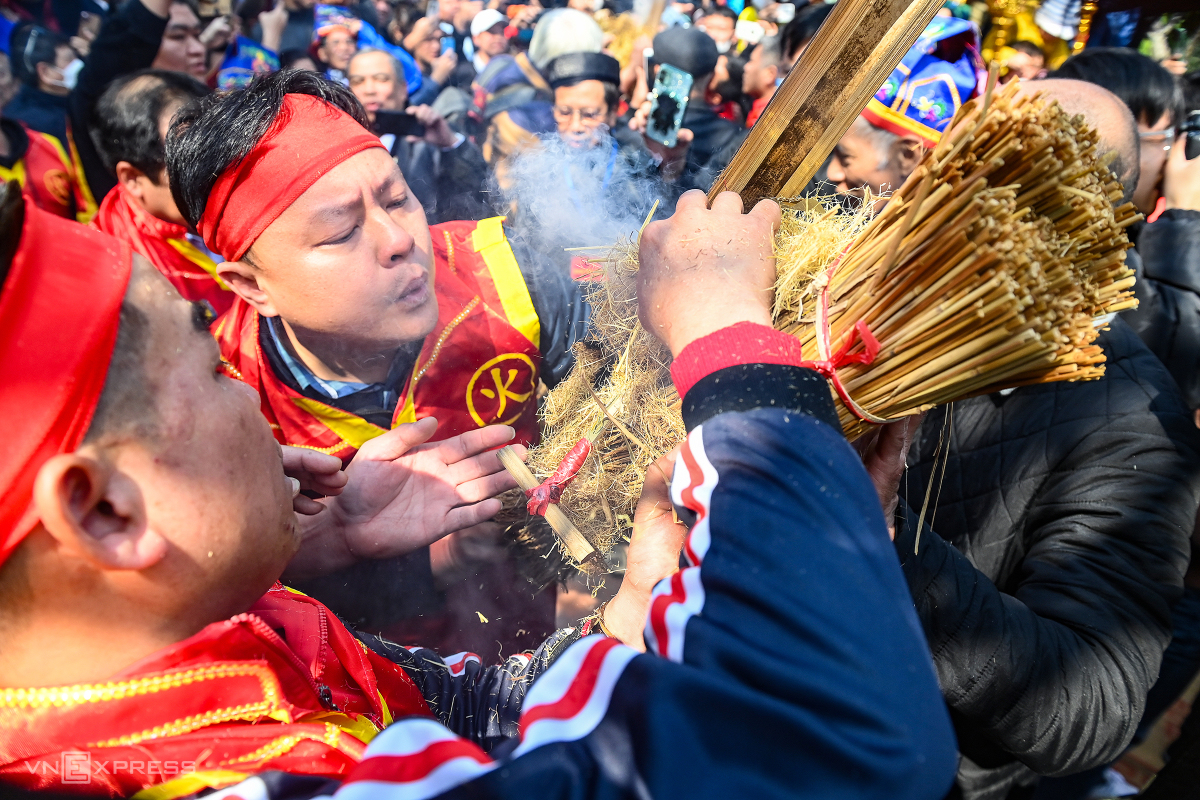
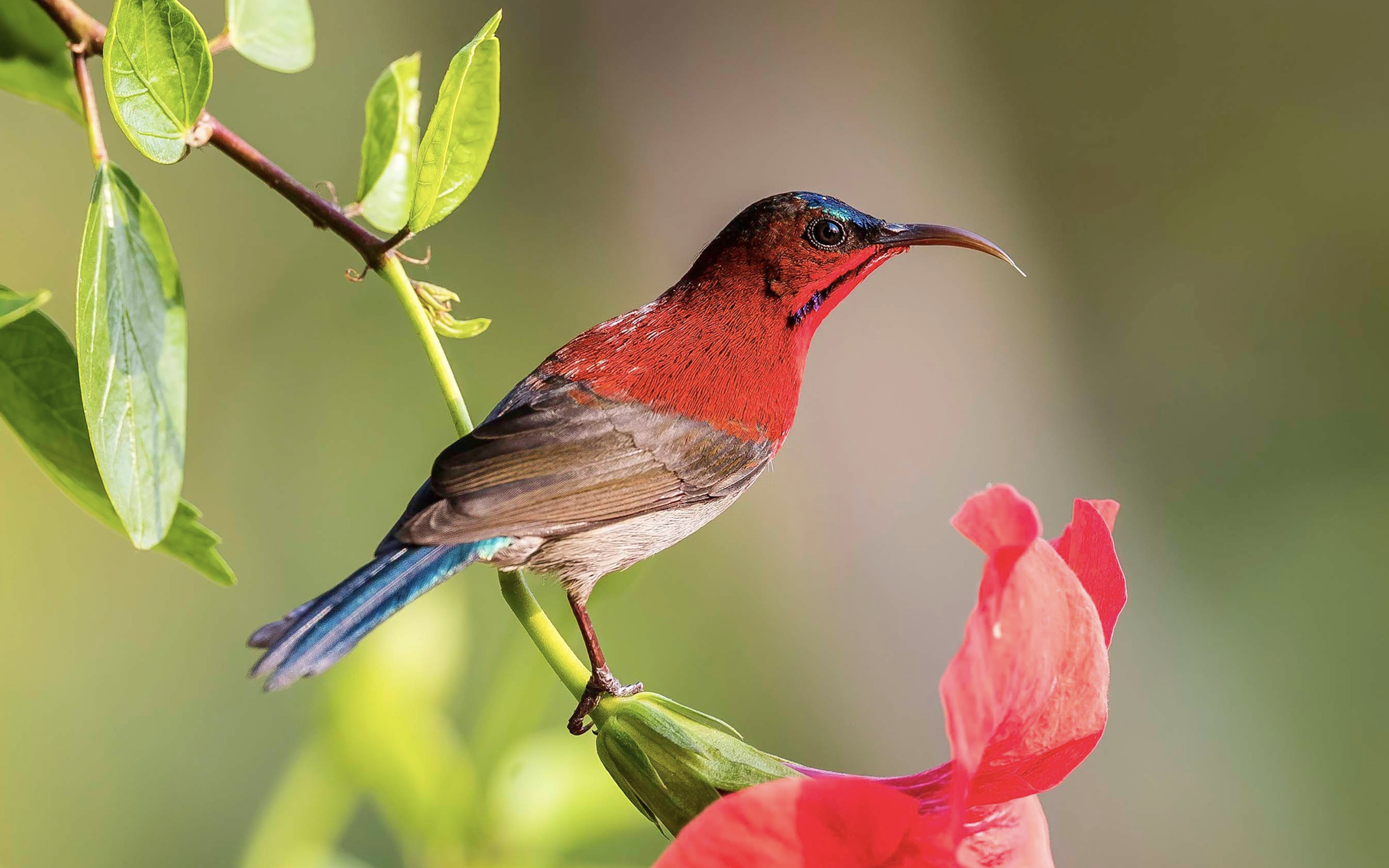




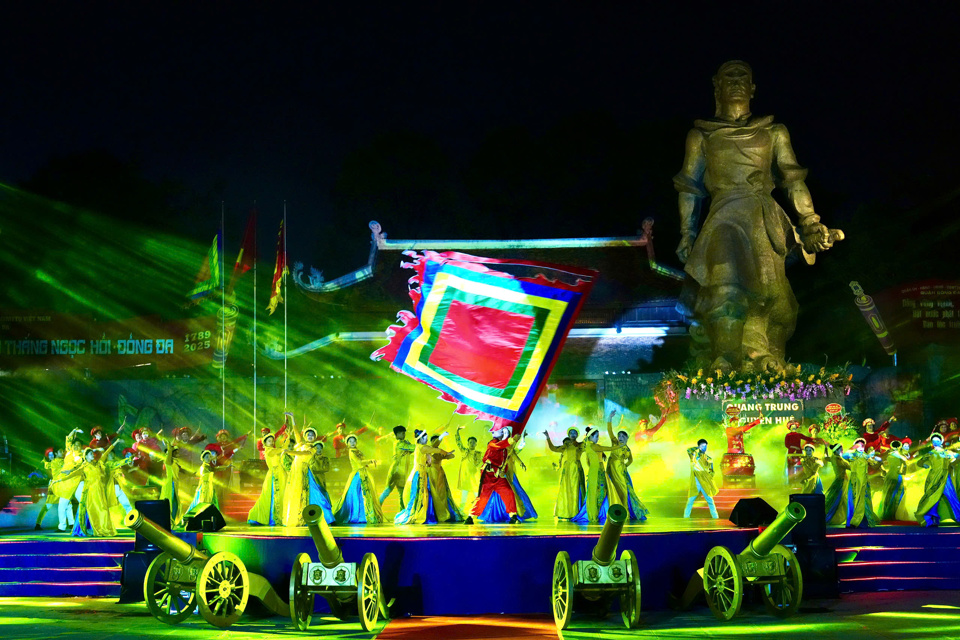

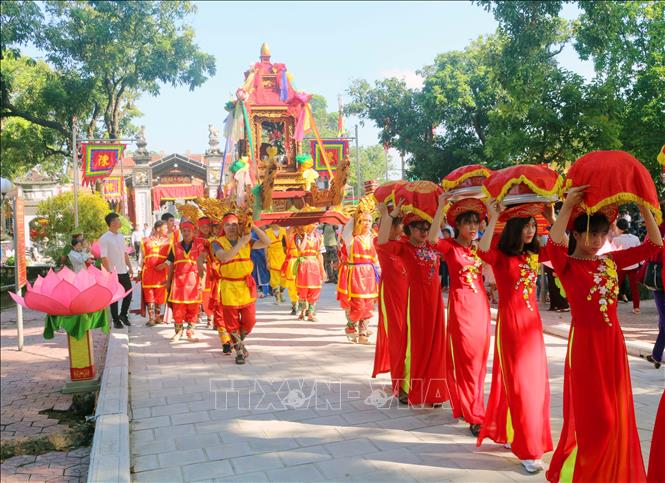
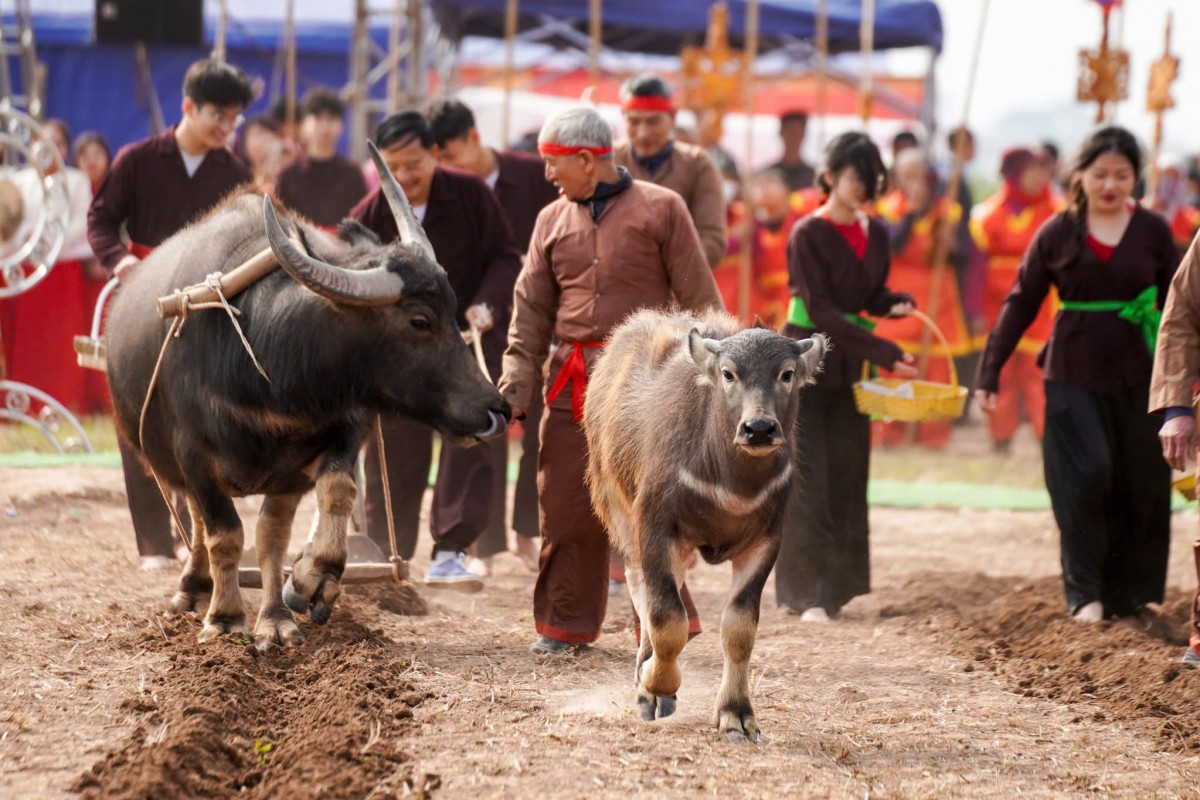
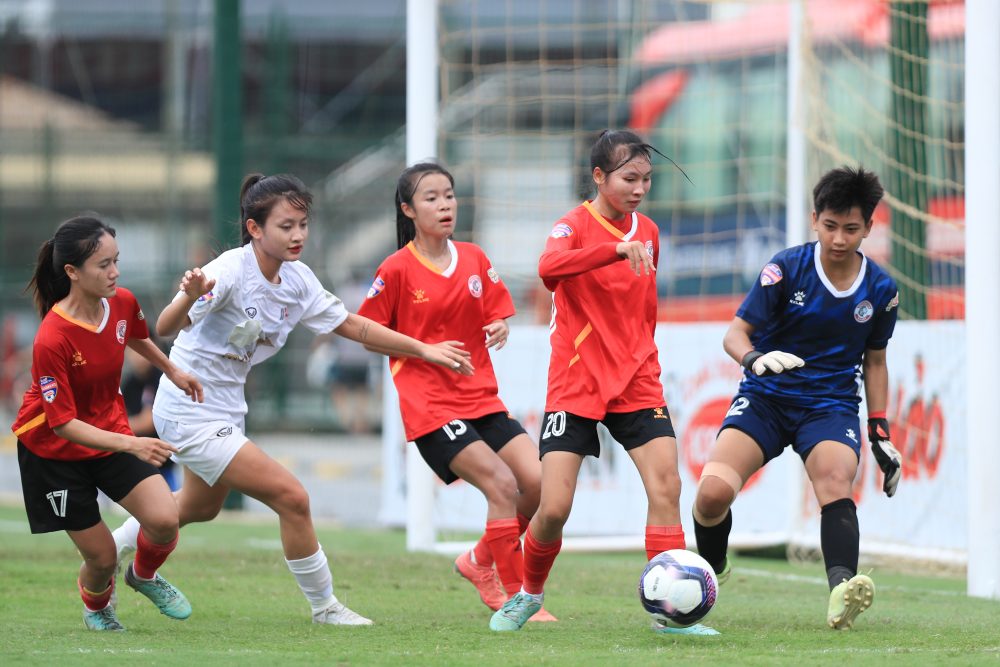
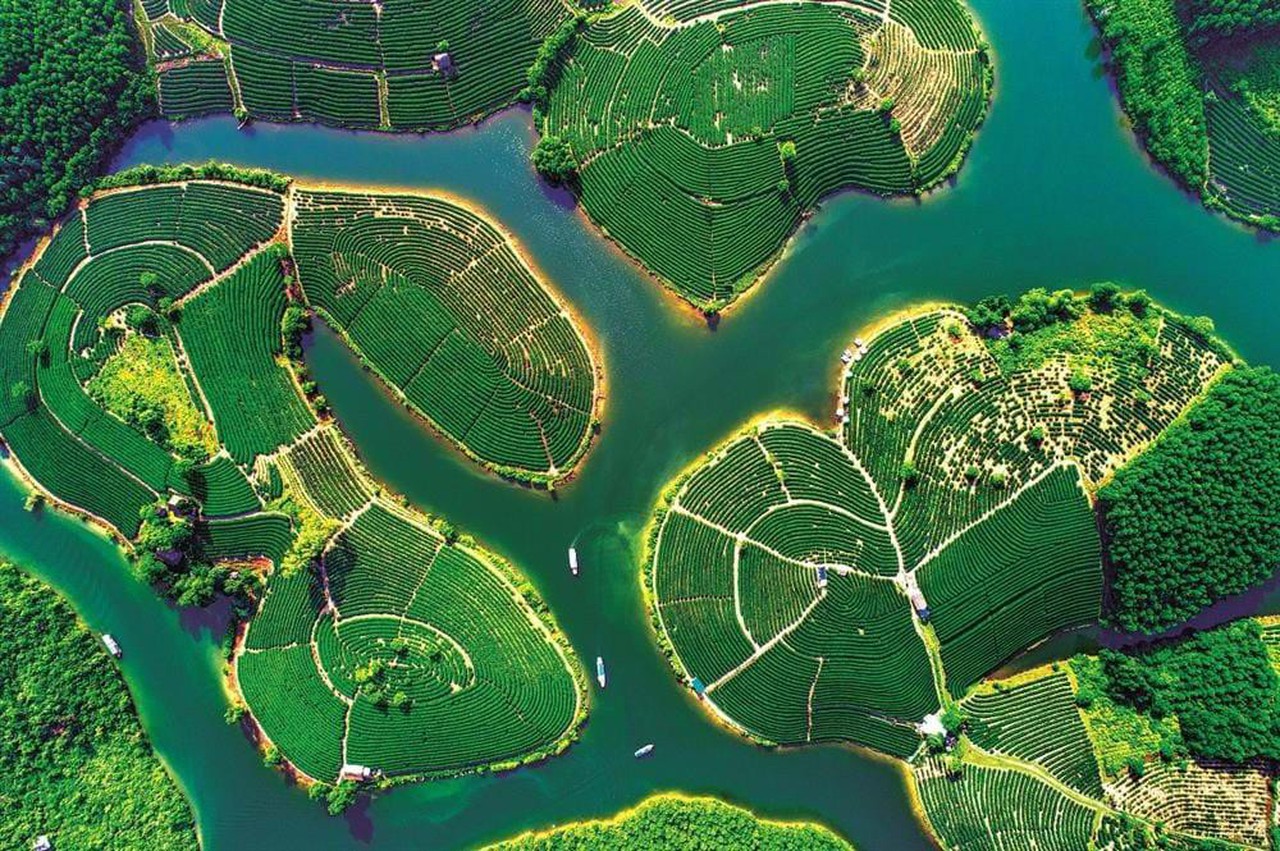

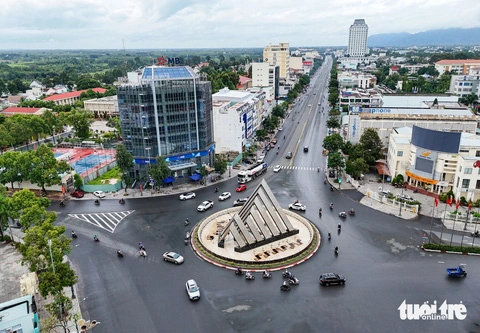
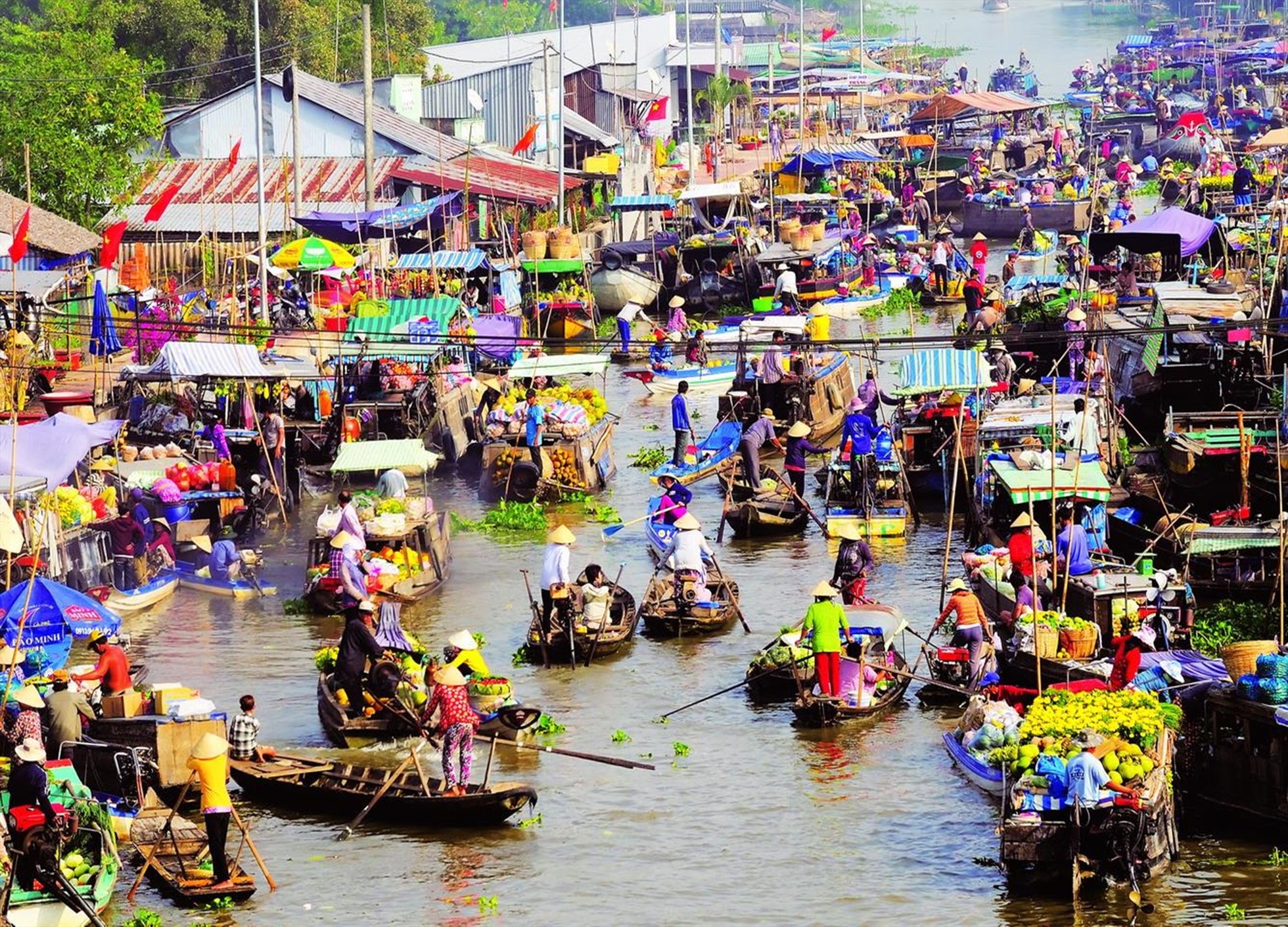
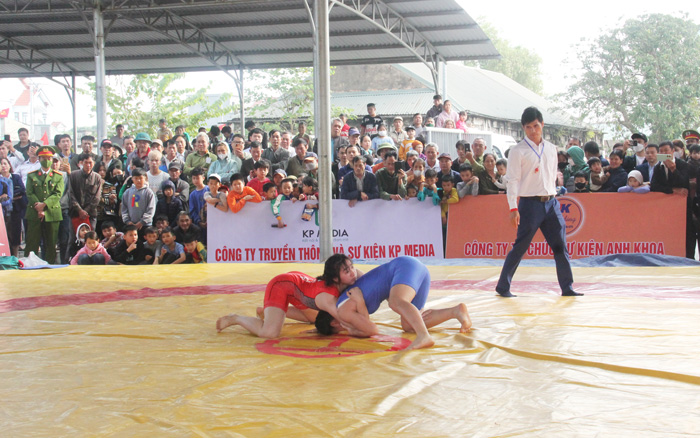
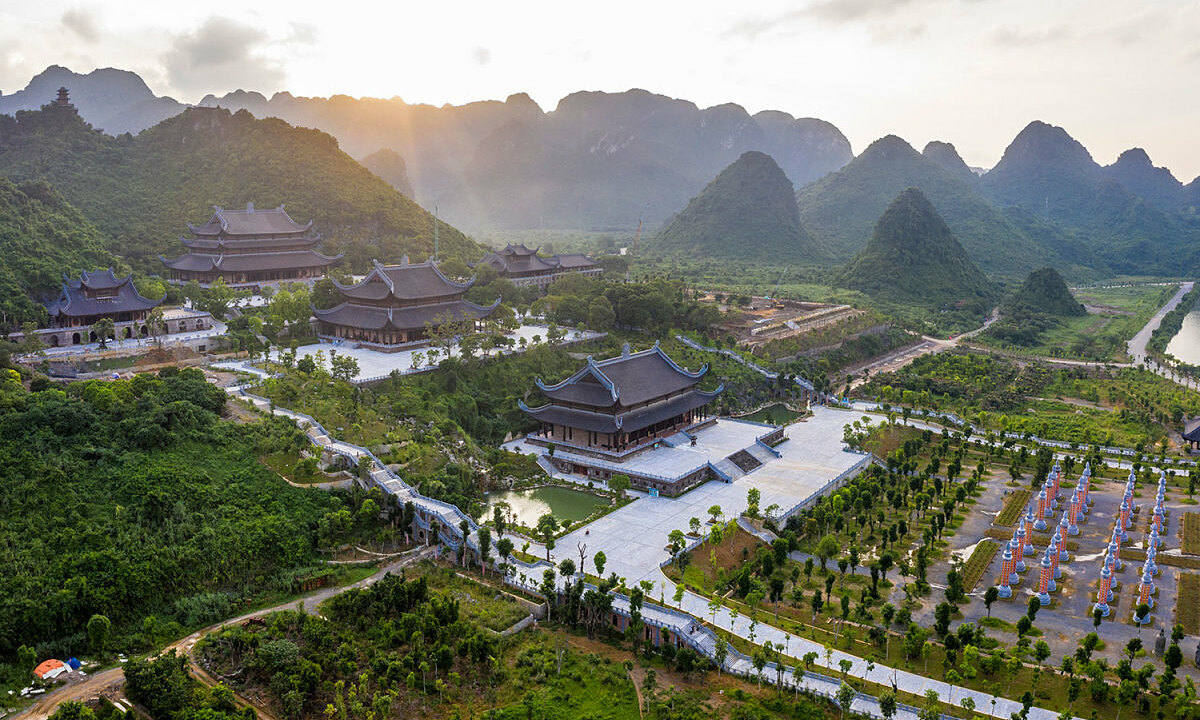
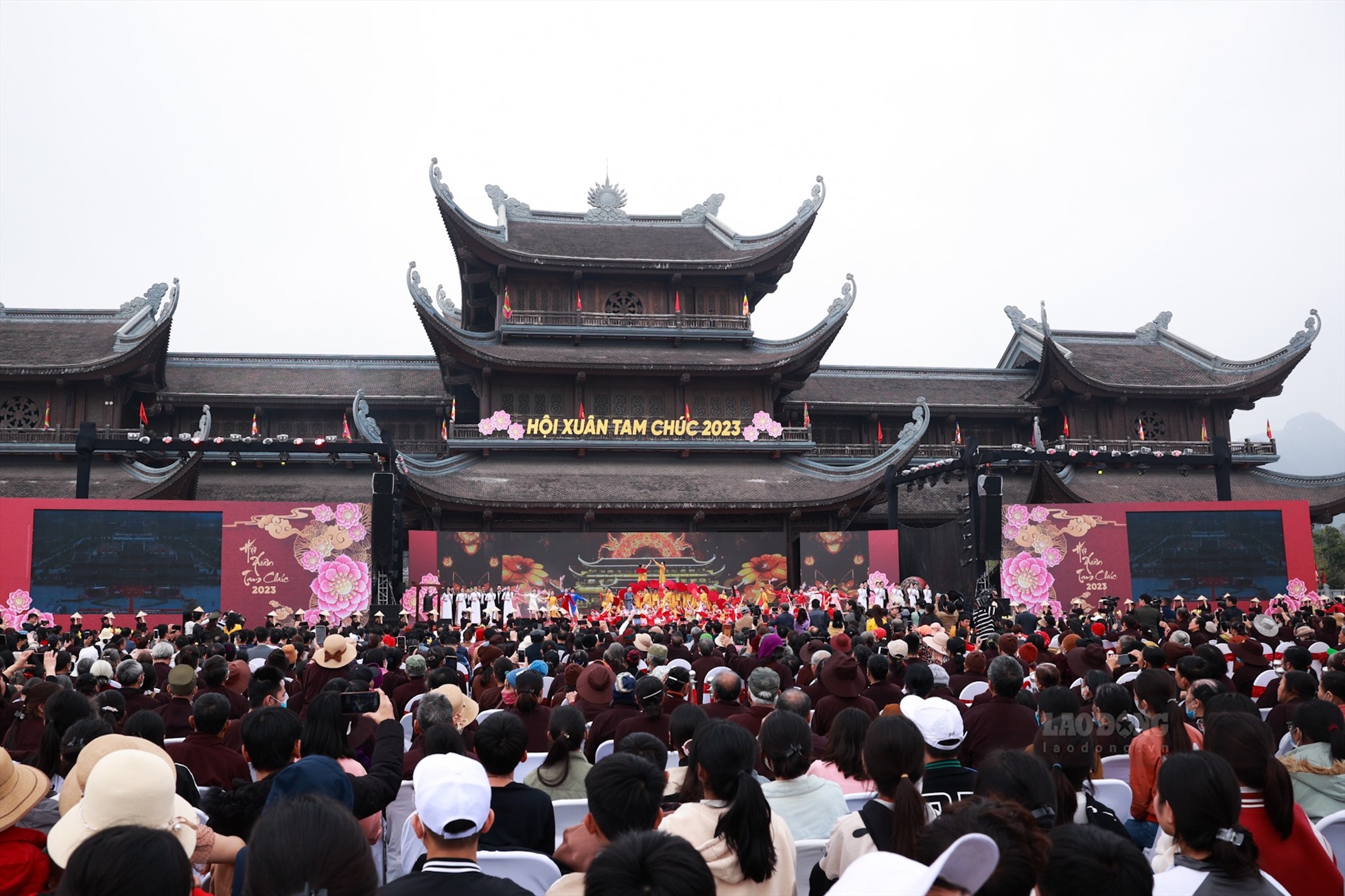






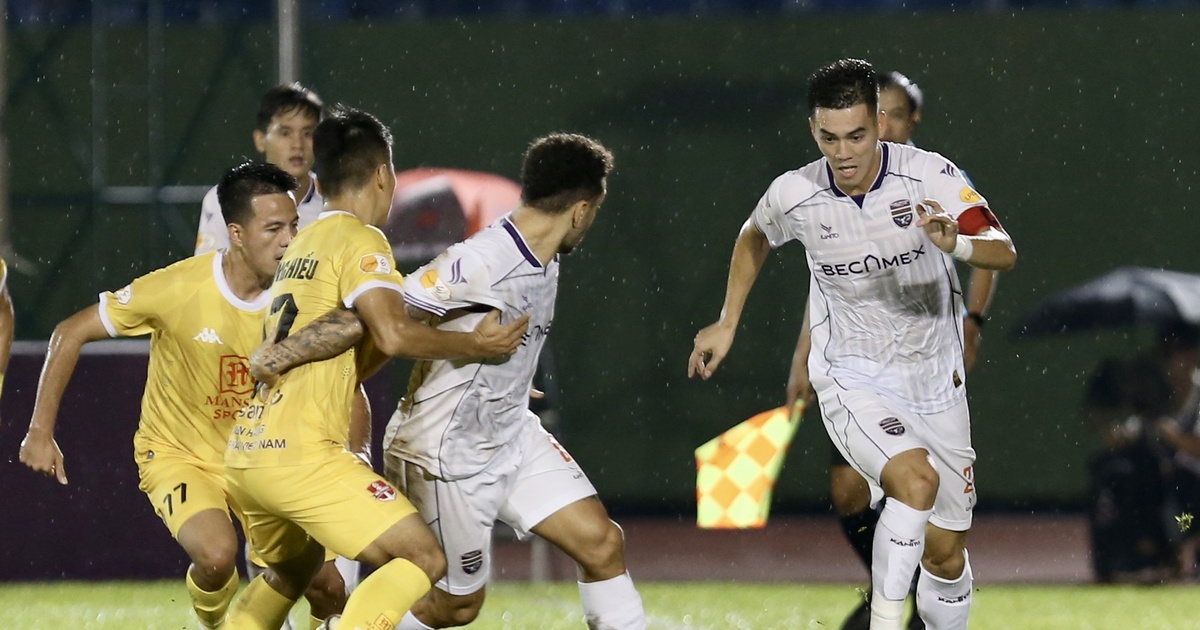



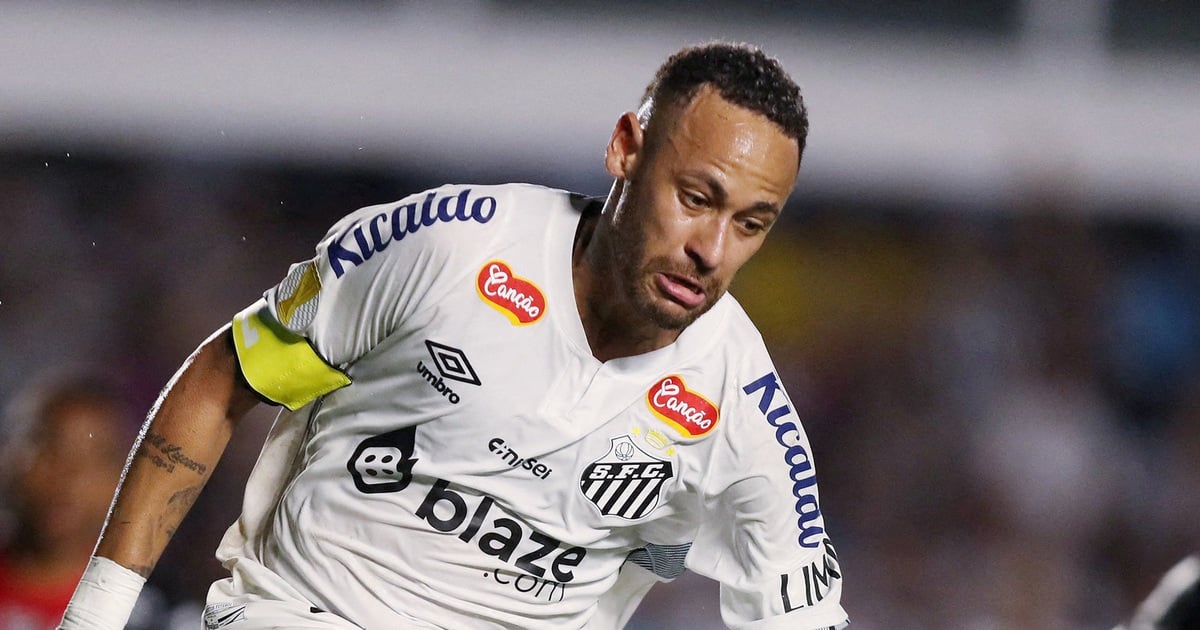
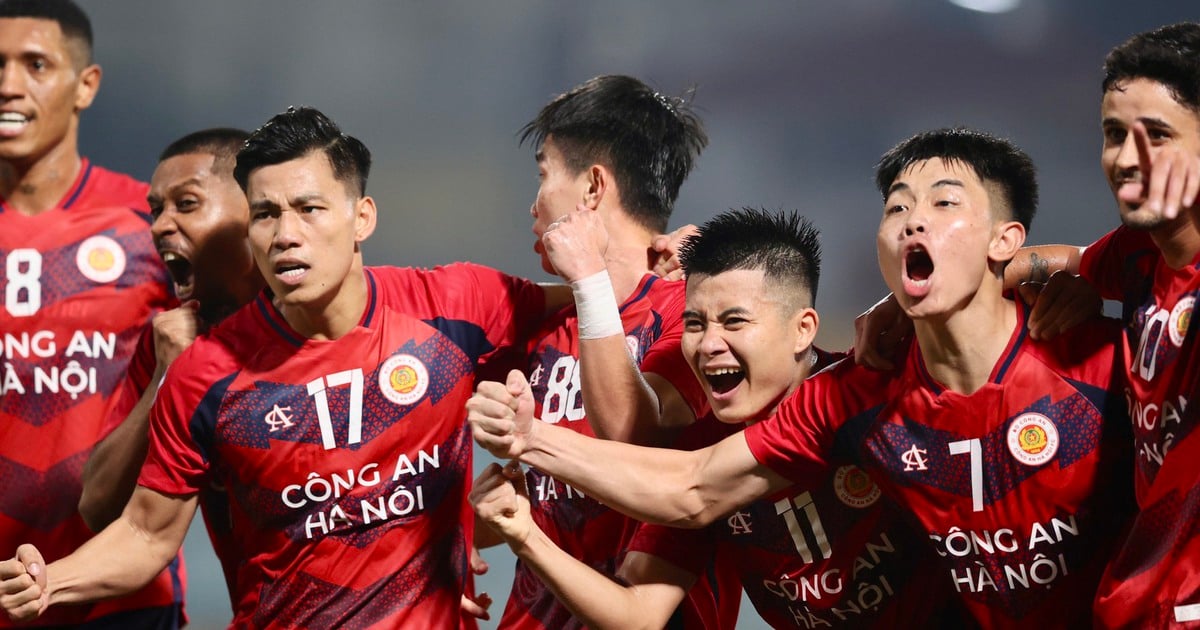
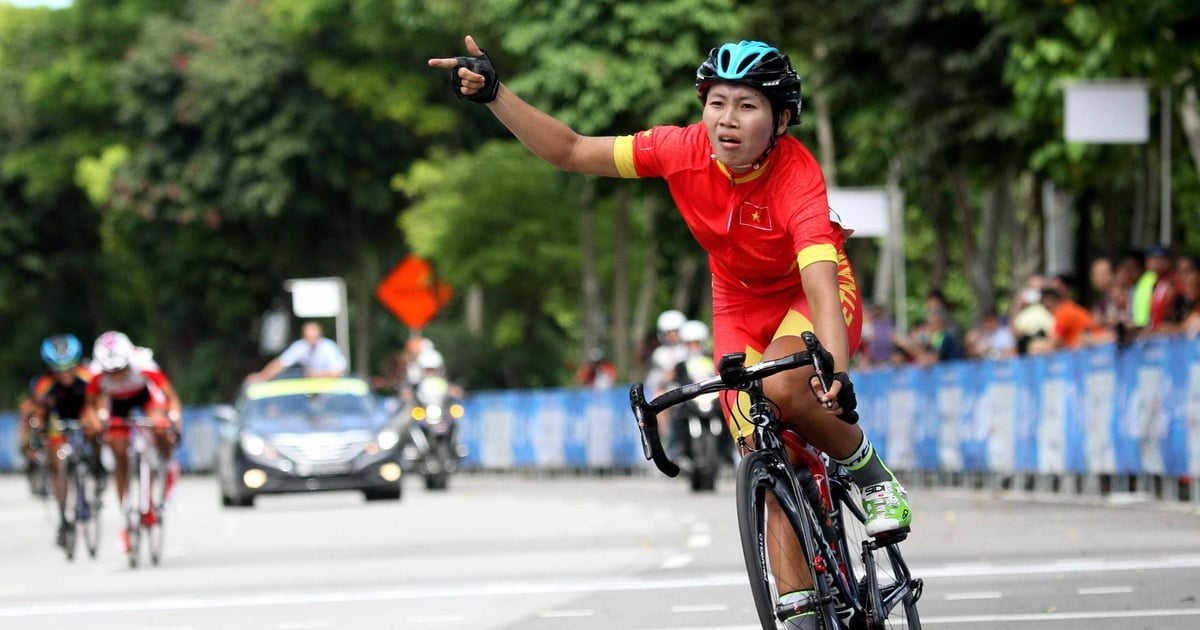

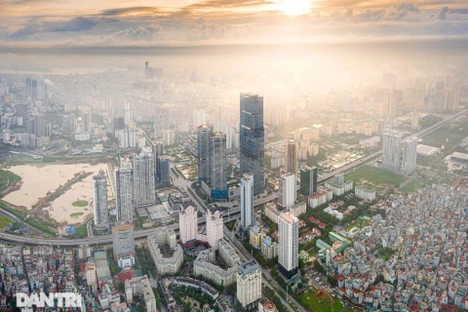
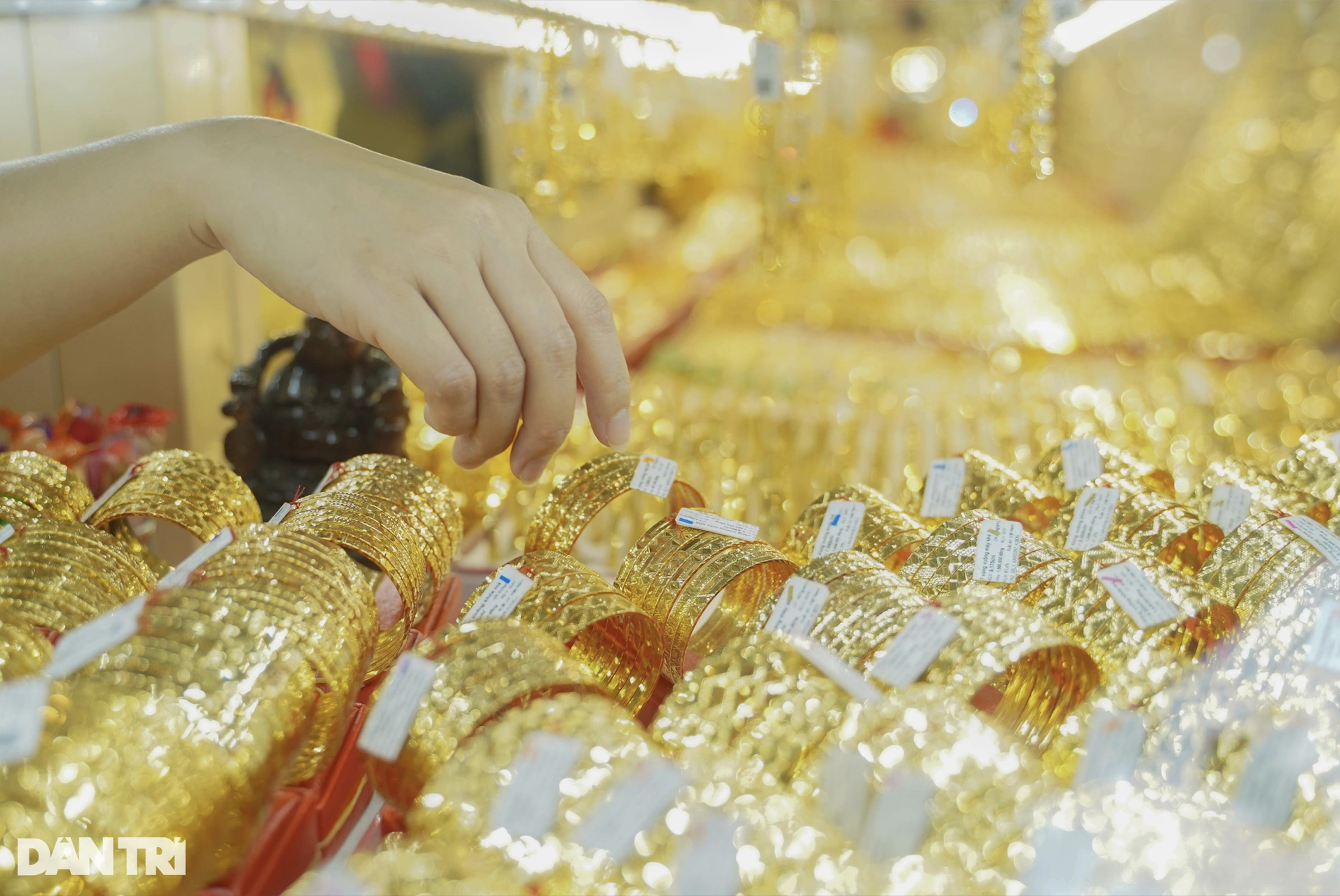
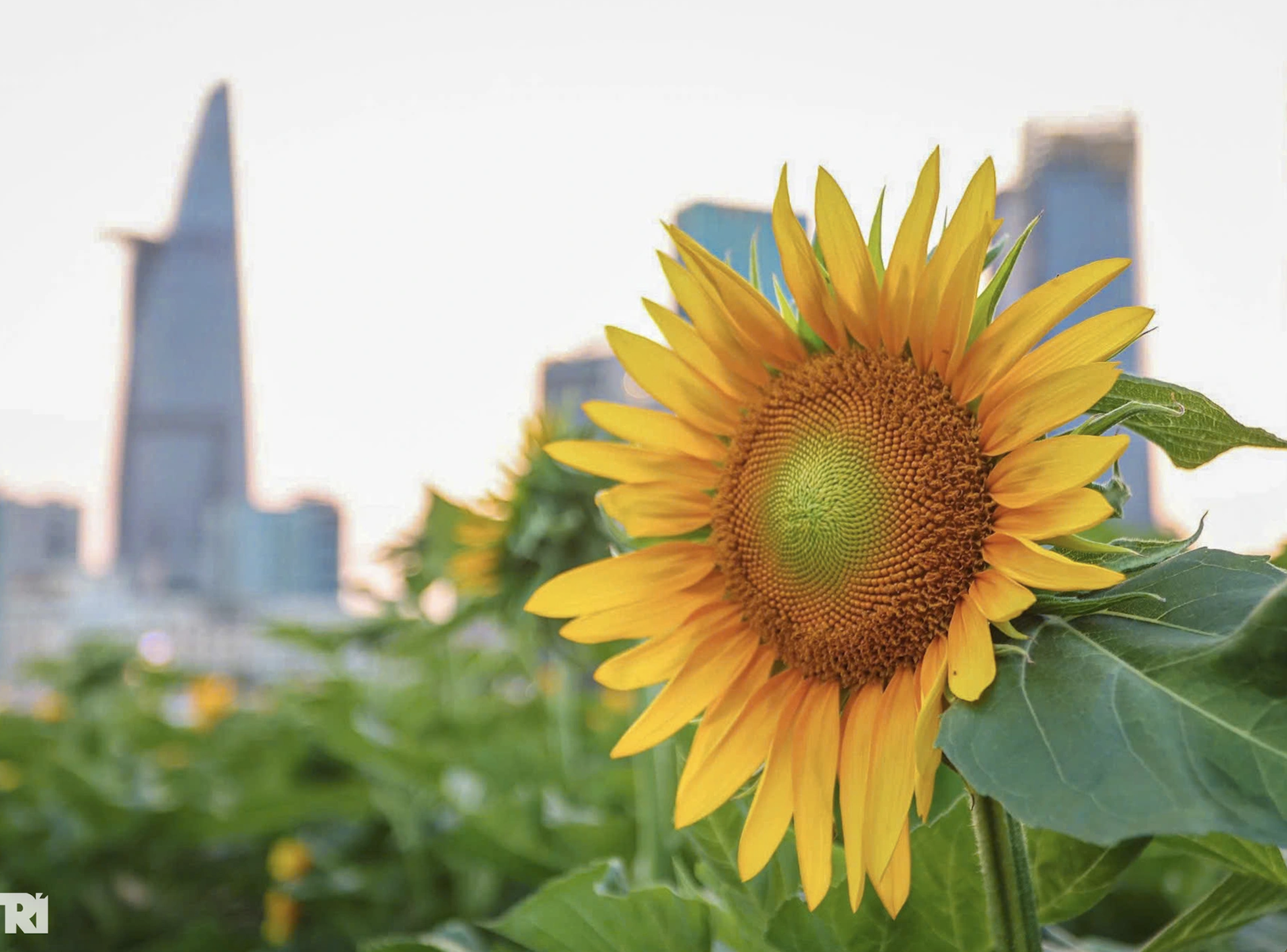
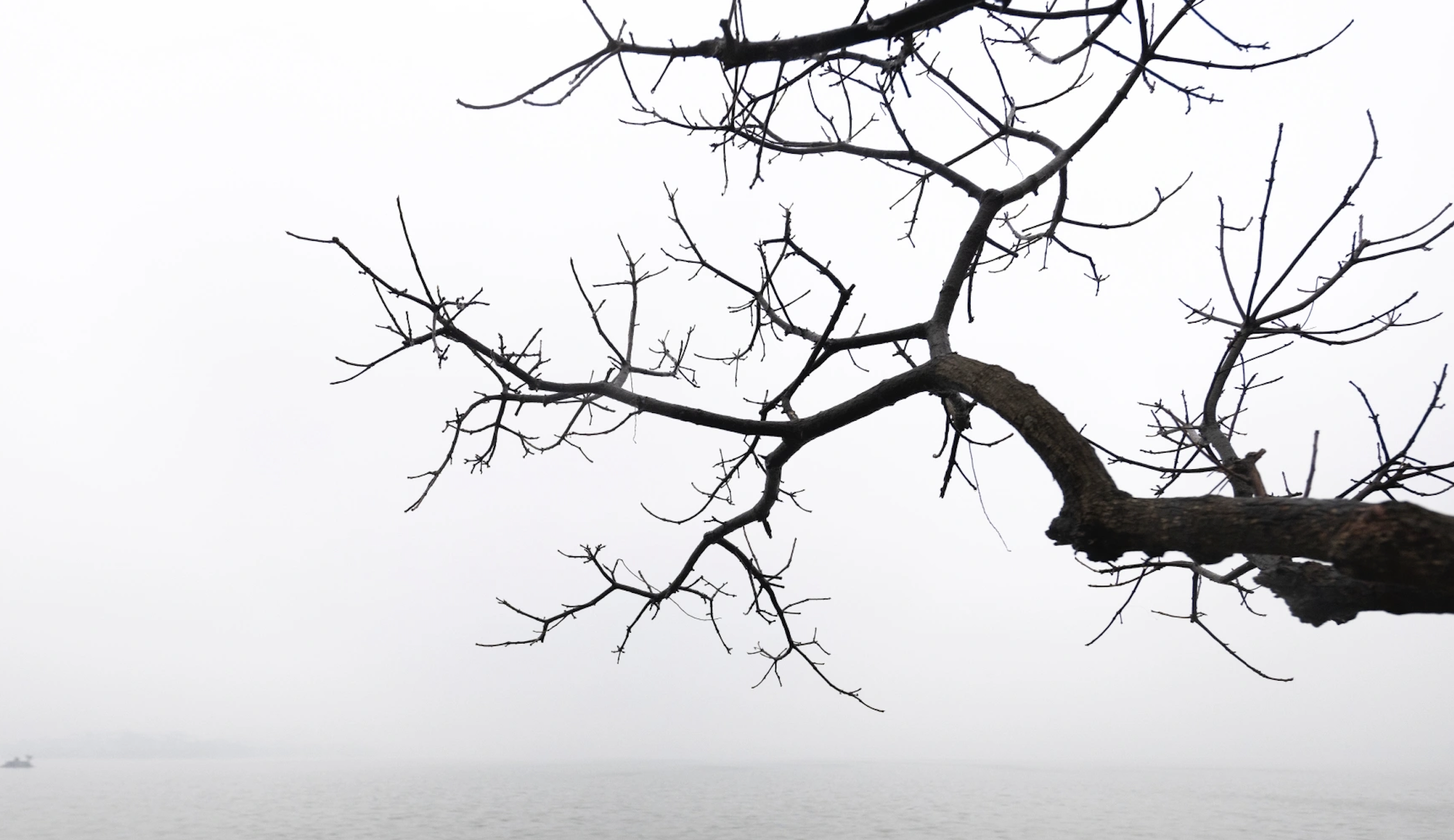
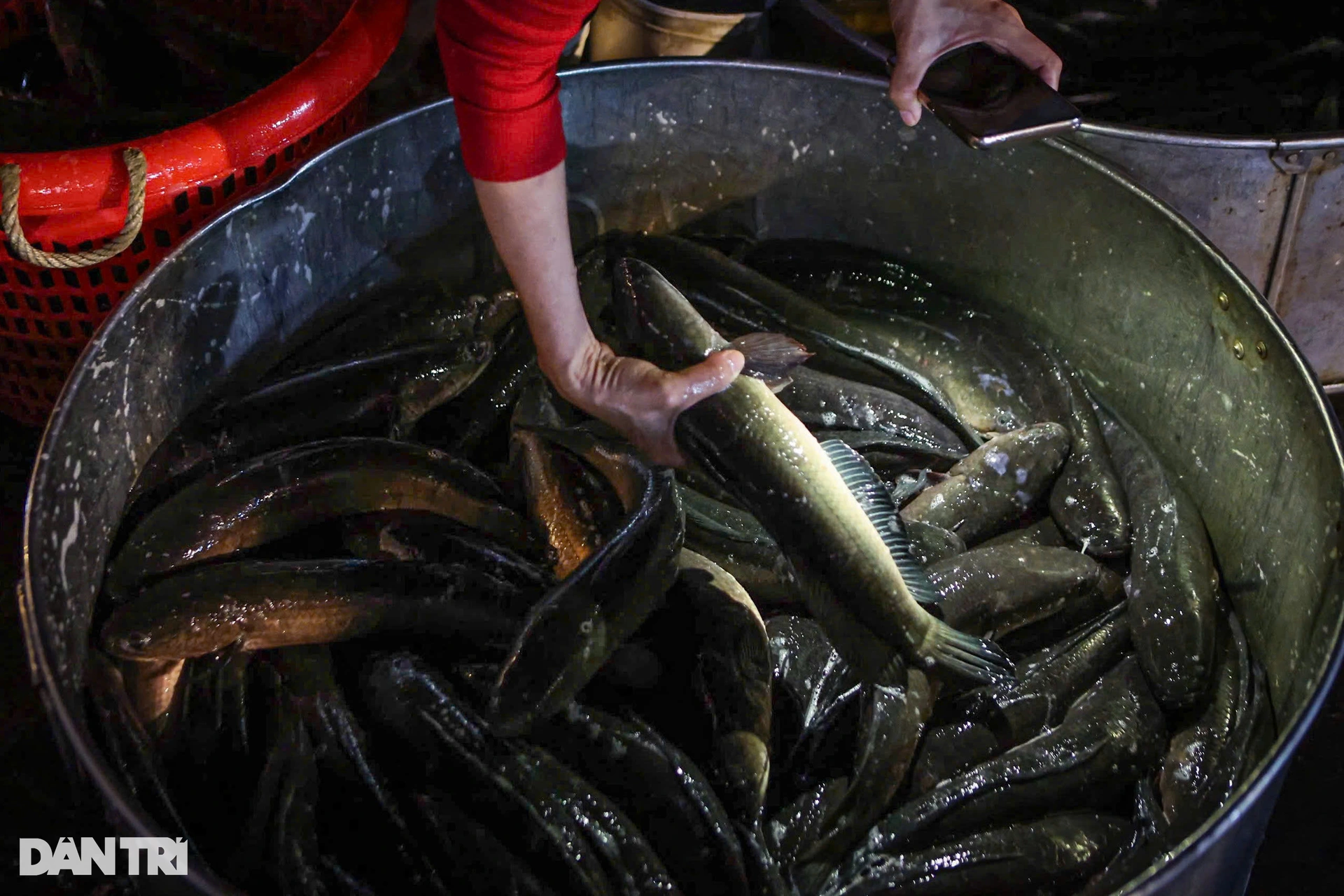
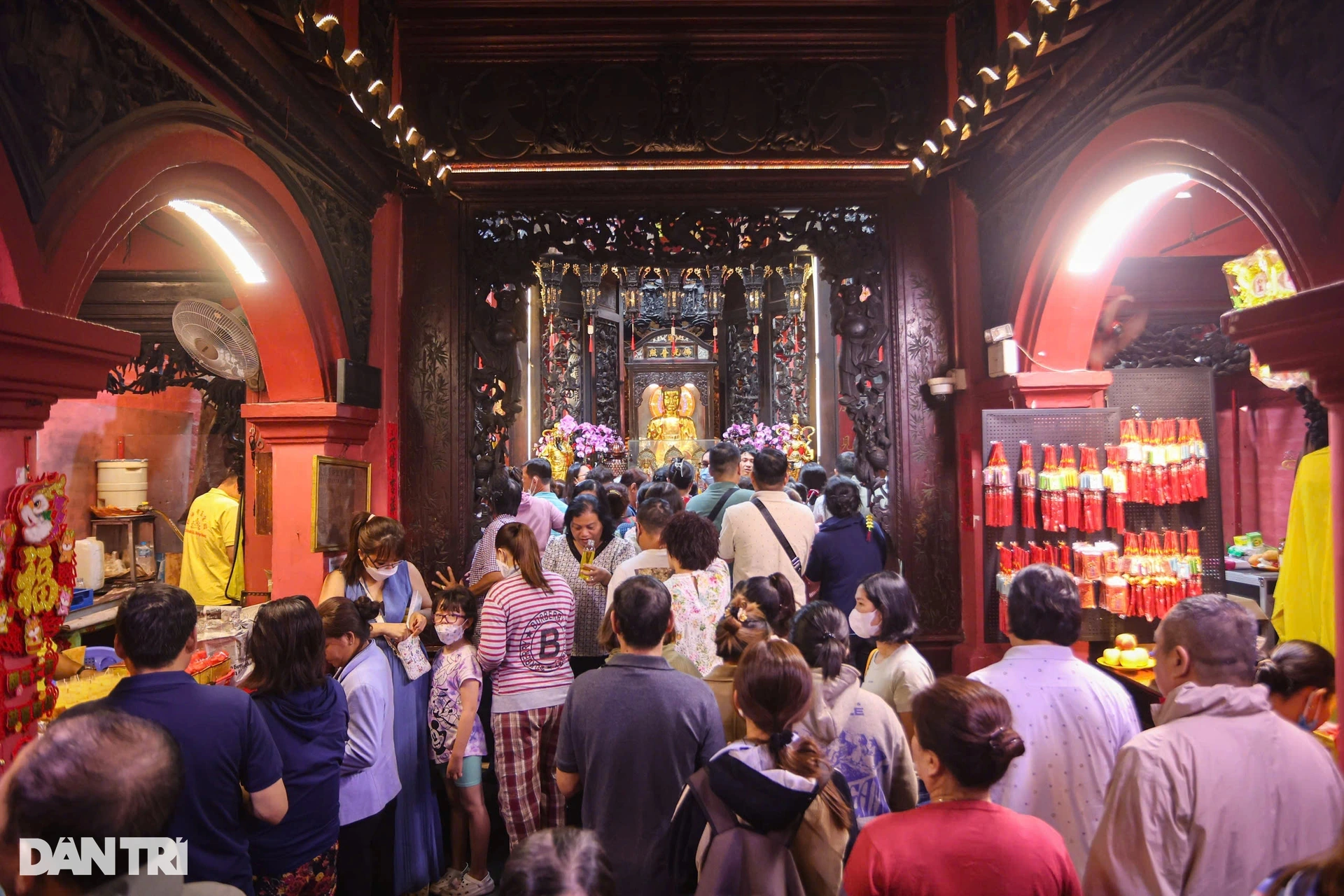



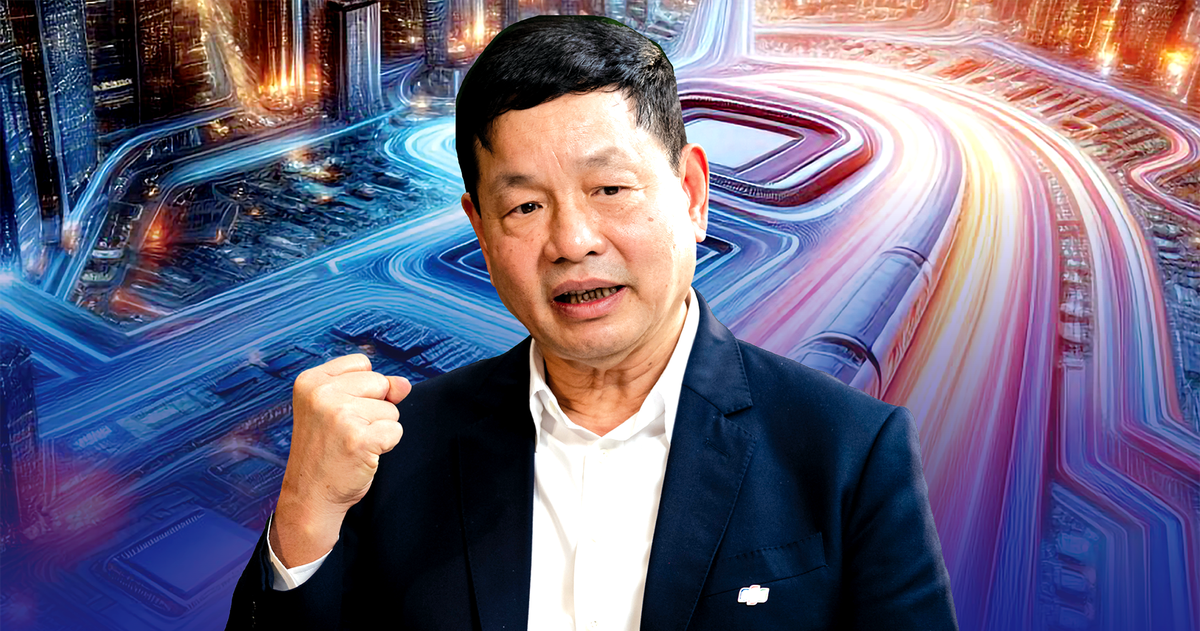


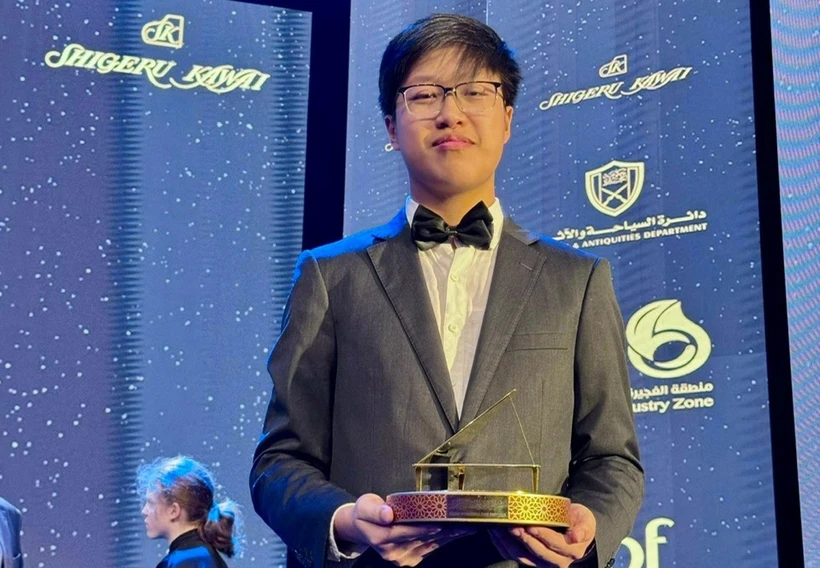

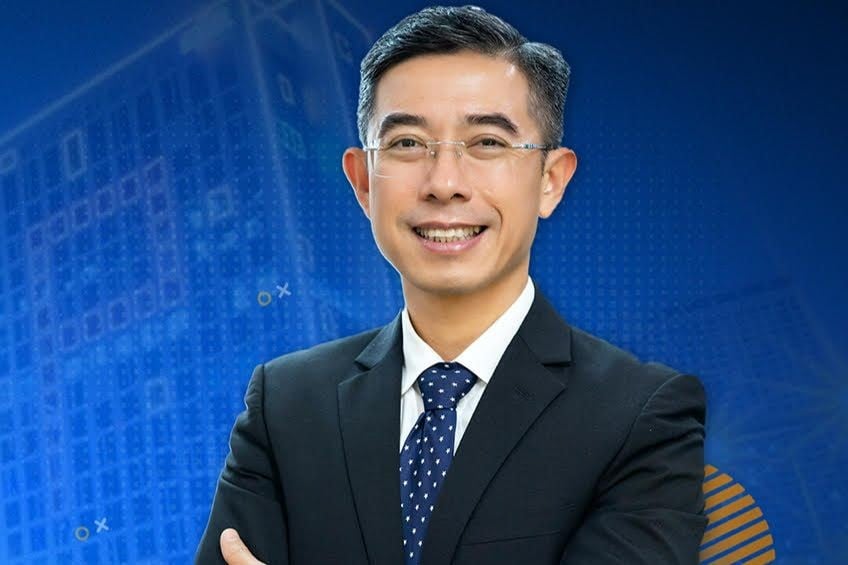




Comment (0)